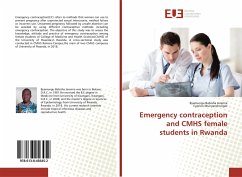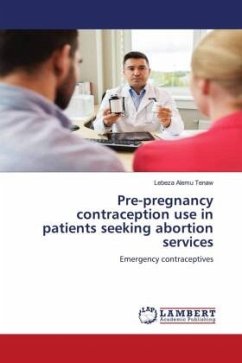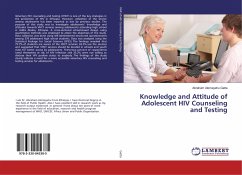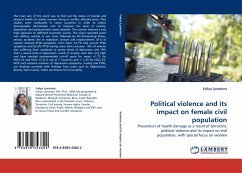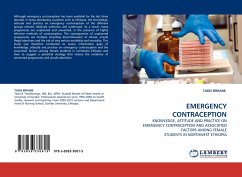
EMERGENCY CONTRACEPTION
KNOWLEDGE, ATTITUDE AND PRACTICE ON EMERGENCY CONTRACEPTION AND ASSOCIATED FACTORS AMONG FEMALE STUDENTS IN NORTHWEST ETHIOPIA
Versandkostenfrei!
Versandfertig in 6-10 Tagen
32,99 €
inkl. MwSt.

PAYBACK Punkte
16 °P sammeln!
Although emergency contraception has been available for the last three decades in many developing countries such as Ethiopia; the knowledge, attitude and practice on emergency contraception of the different groups remains relatively unknown and underused. As a result, many pregnancies are unplanned and unwanted, in the presence of highly effective methods of contraception. The consequences of unplanned pregnancies are multiple including discontinuation of school, unsafe illegal abortions and the risk of very serious morbidity and mortality. This study was therefore conducted to assess informat...
Although emergency contraception has been available for the last three decades in many developing countries such as Ethiopia; the knowledge, attitude and practice on emergency contraception of the different groups remains relatively unknown and underused. As a result, many pregnancies are unplanned and unwanted, in the presence of highly effective methods of contraception. The consequences of unplanned pregnancies are multiple including discontinuation of school, unsafe illegal abortions and the risk of very serious morbidity and mortality. This study was therefore conducted to assess information gaps of knowledge, attitude and practice on emergency contraception and the associated factors among female students in northwest Ethiopia and then to suggest a potential strategy that reduce the incidence of unwanted pregnancies and unsafe abortions.




